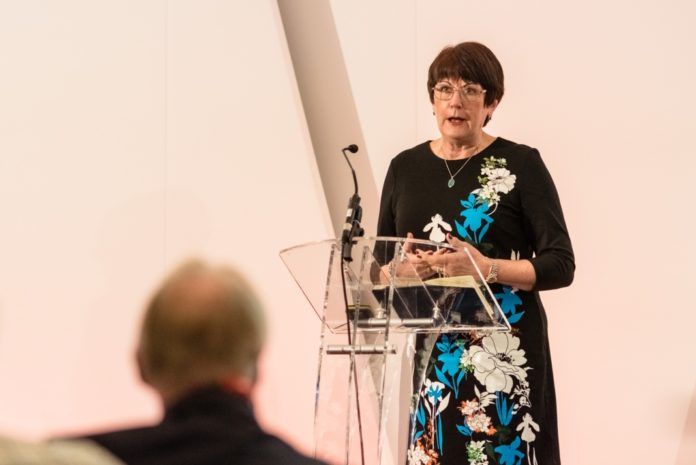Dame Judith Hackitt, author of ‘Building a Safer Future: Independent Review of Building Regulations and Fire Safety’ has spoken about the need for a joined up regulatory process that goes hand in hand with a tougher regulatory regime that has real penalties and sanctions for those that don’t conform.
Addressing the annual Chartered Association of Building Engineers (CABE) conference and exhibition, held at Chesford Grange, Kenilworth, Dame Judith spoke openly about why it has taken a tragedy to wake everyone up to the need for a change in construction industry culture.
She said: “People are looking for quick fixes, but they need to understand that root and branch reform is required. This has to be a turning point to bring about the culture change we need.”
Dame Judith spoke about the fact that we need to change the way we think and act as an industry, but stressed her belief that this is achievable. She referred to a time when construction health and safety was seen as a difficult problem to crack – but noted we have succeeded. Over the past 15 years, health and safety has taken huge strides, and the high levels of fatalities are gone and now there are much improved standards that are industry wide and adhered to by everyone. The industry now needs to do the same again in the delivery of buildings that are fit for purpose.
Continuing, Dame Judith also drew conclusions about how safety can help to drive a wider industry change in terms of how we design, build and the legacy we leave behind. She said: “Currently construction safety is focused on the workforce, but we need to also consider residents and the public. We need to think about buildings not as jigsaw puzzles that magically come together, they need to be treated as a complex system – a change in one small thing can have massive changes and impact integrity of the buildings.”
Part of this change will be in driving out value engineering – a phrase that Dame Judith claims she would be “happy to never hear again. It is anything but value, it is cutting costs and quality.” Coupled to this is the need for industry to stop working in silo – we all need to work together. Dame Judith said: “The structure of industry has to change to make it more effective. We need to put a focus on the way in which buildings are procured. If we have a process that makes people bid at a cost they can’t afford to deliver at, we set ourselves up to fail.”
She concluded by talking about the race to the bottom and the lack of focus the sector has in “delivering safe homes for people to live in, as well as the fundamental flaws in design and build contracts that sees undocumented projects handed over to clients.”
Dame Judith also spoke at length about how the issue of competency has to be addressed. Acknowledging the fact that there are many competency schemes currently in operation, she stated that: “We have many people working at different levels. We need to understand these levels and people need to know what is expected from them, and we need to make sure those who are not fully compliant are properly supervised.”
A key part of her speech clarified the role of the approved inspector, something key to CABE’s membership. Dame Judith said: “There is no reason why approved inspectors can’t be part of the Joint Competent Authority, there just can’t be a conflict of interest. You can do both roles, just not on the same project.”
This year’s CABE conference has been themed around pathways to excellence and how building engineers can help the sector deliver more than simple compliance. Set against the publication of the Hackitt review, Dame Judith’s keynote speech provided a thought provoking backdrop to two days of debate and discussion.




